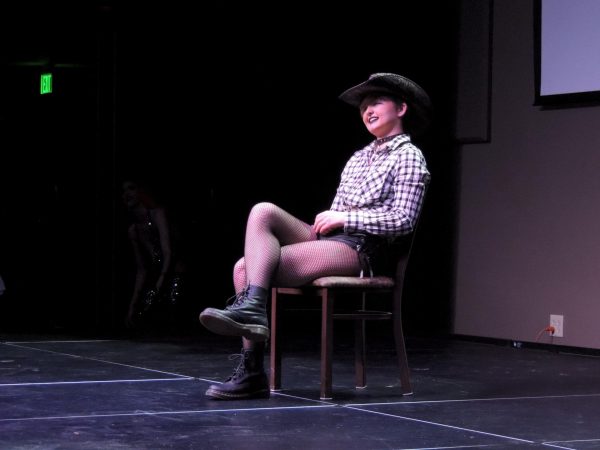WiGo – The Latest Trend in Collegiate Social Media
February 3, 2015
“WiGo” is the latest social networking mobile application making waves among college students. The app focuses on answering the age old question of “Who Is Going Out?” and where are people going?
“WiGo” is the brainchild of former College of the Holy Cross Division I hockey player Ben Kapen, His application, released in August 2014, attempts to help college students, with their constantly changing social plans, to easily organize their friends and acquaintances for a night of social activities.
On its Google Play page, “WiGo” claims to be a simpler, more efficient method than “annoying group texts, inefficient Facebook status updates, and shameless tweets to rally… friends together to go out.”
Among its features, the application boasts a student-only filter that “blocks all townies, adults, and other randos.” Additionally, “WiGo” resets every morning at 5 a.m. so any activity on the phone from the night previously, from messages to pictures, is “wiped clean” making “every day on ‘Wigo’ a new day.”
However, before “WiGo” can be used on a college campus, it first has to be “unlocked.” The application becomes unlocked when 100 users at a single institution register with and download “WiGo.”
While popular with east coast institutions, only two schools in the state of Iowa, Coe College and Iowa State University, have successfully unlocked “WiGo” as of time of publication. Simpson is on the list of colleges that have some downloaded users but not yet enough to have “unlocked” the application for use. Less than half the required users have registered from Simpson College.
Registering with the application requires downloaders to go through a two-part security review. In order to use “WiGo,” it has to be connected to a Facebook account. The application will only allow Facebook accounts with at least 100 friends that have been active for over one year to pass this security step. This Facebook check helps keep out so-called “trolls” and fake accounts that populate such other applications as Tinder.
The second tier of the security protecting “WiGo” involves registering a school email with the application. “WiGo” is only meant to be used by college students and this step effectively shuts out anyone not affiliated with an institution of higher learning as a student. Only .edu emails will work with “WiGo” registration.
By linking “WiGo” with a Facebook account and a valid student email, the application will become available to the user. The next step is to create a public or private “WiGo” profile using photos from the linked Facebook account. This profile is what a user’s friends and acquaintances will see while using “WiGo.”
After creating the “WiGo” profile, the application’s plethora of different features becomes available for use. Users can interact with their friends and acquaintances by selecting their profile to either let them know they want to see them out or invite them to an event. Either way, the person will receive a push notification on their cellular device notifying them of the interaction.
Students using the application can also see who is going to what events, if publicly listed. The app even permits users to “peek” into the events themselves by allowing prospective attendees the opportunity to view a highlight reel of videos and photos from the event. Both of these features help people determine if they really want to go to an event or not.
Overall, “WiGo” has received positive reviews on both the Apple and Google Play stores for both its simplicity and ease of use. However, the application will not become available to Simpson students until the 100 download threshold is reached.
It’s up to the students of Simpson to determine if “WiGo” is the right application for and answer to the ubiquitous question of “Who Is Going Out?”










